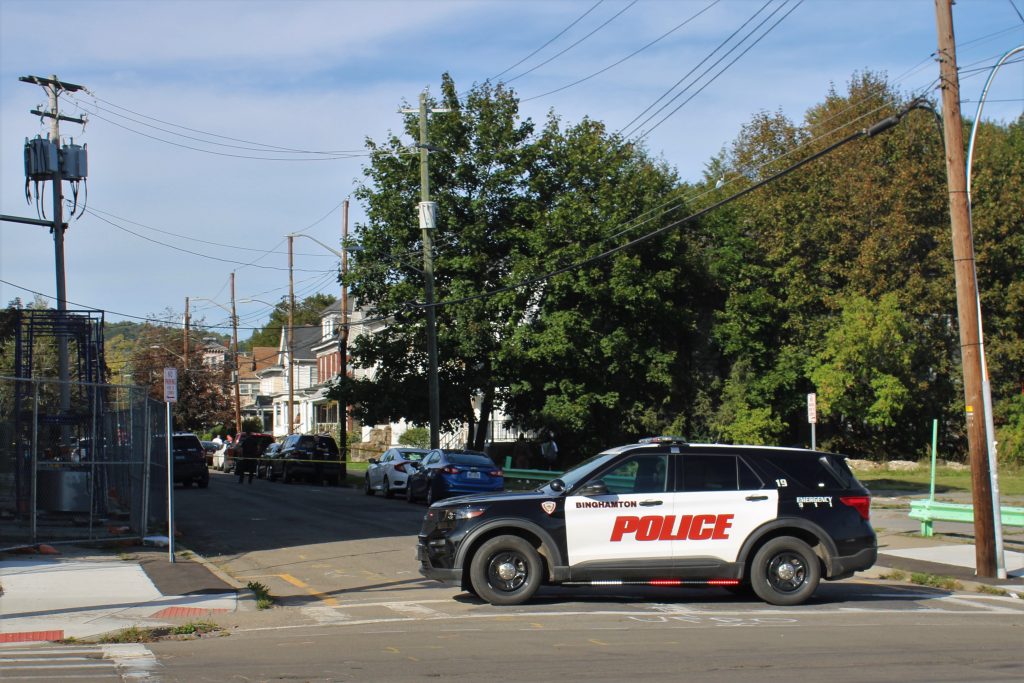In August 2011, the Binghamton Police Department (BPD) conducted a no-knock raid looking for a drug dealer. Instead, police officer Kevin Miller shot an innocent, unarmed man — Jesus Ferreira. Eleven years later, the case has reached the U.S. Court of Appeals for the Second Circuit, which ranks behind only the Supreme Court in judicial authority in the United States.
After the shooting, Ferreira, who underwent surgery to remove his spleen as a result of his injuries, sued Miller and the city of Binghamton. The original jury ruled against holding Miller liable, but charged the city with $3 million in damages owed to Ferreira, with the city liable for 90 percent of those damages.
Both Ferreira and the city of Binghamton appealed the decision, elevating the decision to the U.S. District Court for the Northern District of New York. In 2017, this court overturned the original ruling based on the “special duty rule,” a New York state law that requires a plaintiff to prove that government officials had a special duty to them in order to substantiate a negligence claim. The judge asserted that Ferreira’s legal team failed to satisfy this rule, and held neither Miller nor the city of Binghamton responsible for the shooting.
The case then rose to the United States Court of Appeals for the Second Circuit. Although the court has yet to receive briefs from either party’s legal team, it will likely take into account an opinion the New York Court of Appeals issued on March 22, which states that the special duty rule does not apply to this case. If this occurs, the city of Binghamton may once again assume responsibility for paying Ferreira 90 percent of $3 million in damages.
Still, this opinion does not guarantee a ruling in favor of Ferreira. Brian Sokoloff, the lawyer representing the city of Binghamton, said his legal team still plans to fight for a ruling preferred by the city, though he did not state what such a ruling might look like.
“We will outline in our brief what we believe should happen next in this case,” Sokoloff wrote in an email. “There are several possibilities, some of which are acceptable to the city.”
Ferreira’s case stands among many lawsuits and public grievances against Broome County’s policing and prison systems. This includes a lawsuit by a transgender woman against Broome County for discrimination in its jails, protests against the disproportionate incarceration rates of Black people and opposition to the increased use of no-knock raids, like the one that injured Ferreira.
Some question whether a ruling that holds the city liable for Ferreira’s injuries will affect broader changes to policing in Binghamton and in the United States at large.
William Martin, Bartle professor of sociology and founding member of Justice and Unity for the Southern Tier, a local, anti-policing activist group, expressed skepticism about whether certain reforms he deems necessary will be enacted.
“We have unaccountable county and city police forces at the moment,” Martin said. “The past mayor and the state senator have allied with police forces, sheriffs and mayors around the state to roll back reforms. The city pays for this, not the mayor, not the policemen. So when the county has lost successive lawsuits for medical malpractice, that has not stopped the sheriff or the city.”
Specifically, Martin called for police to stop conducting no-knock warrants, which he said repeatedly result in death or injury to innocent people, such as Ferreira.
“It’s unconstitutional,” Martin said. “And it’s a part of the war against the poor. Mass incarceration, the war on drugs and the fear that people have [of them] creates the ability to roll back constitutional protections and conduct no-knock raids across Broome County and across the country.”
Michael Catalano, a Ph.D. candidate studying political science with a focus on U.S. courts and law, said that under current U.S. case law and judicial precedent, no-knock warrants do not violate the Constitution. Although Catalano predicts that this case will not likely affect the constitutionality of no-knock raids, he expressed optimism that holding the city financially responsible for Ferreira’s injuries may motivate reform.
“If the city loses, and they have to pay all this money, they may be less willing to allow no-knock warrants,” Catalano said. “There may be policy put forth by the city council or the county saying they’ll put an end to no-knock warrants, as we have seen in other localities across the country where there has been a call for an end to no-knock warrants and local lawmakers have complied with such calls.”
After the U.S. Court of Appeals for the Second Circuit’s decision, the next route for both parties would be an appeal to the Supreme Court itself. According to Catalano, the chances of this are low due to the Supreme Court’s high selectivity in the cases it handles.
Two appeals and three court hearings later, the U.S. Court of Appeals for the Second Circuit’s decision will likely make the final decision, cementing Ferreira’s fate.
Ferreira and David Harder, the Broome County sheriff, did not respond to a request for comment.



